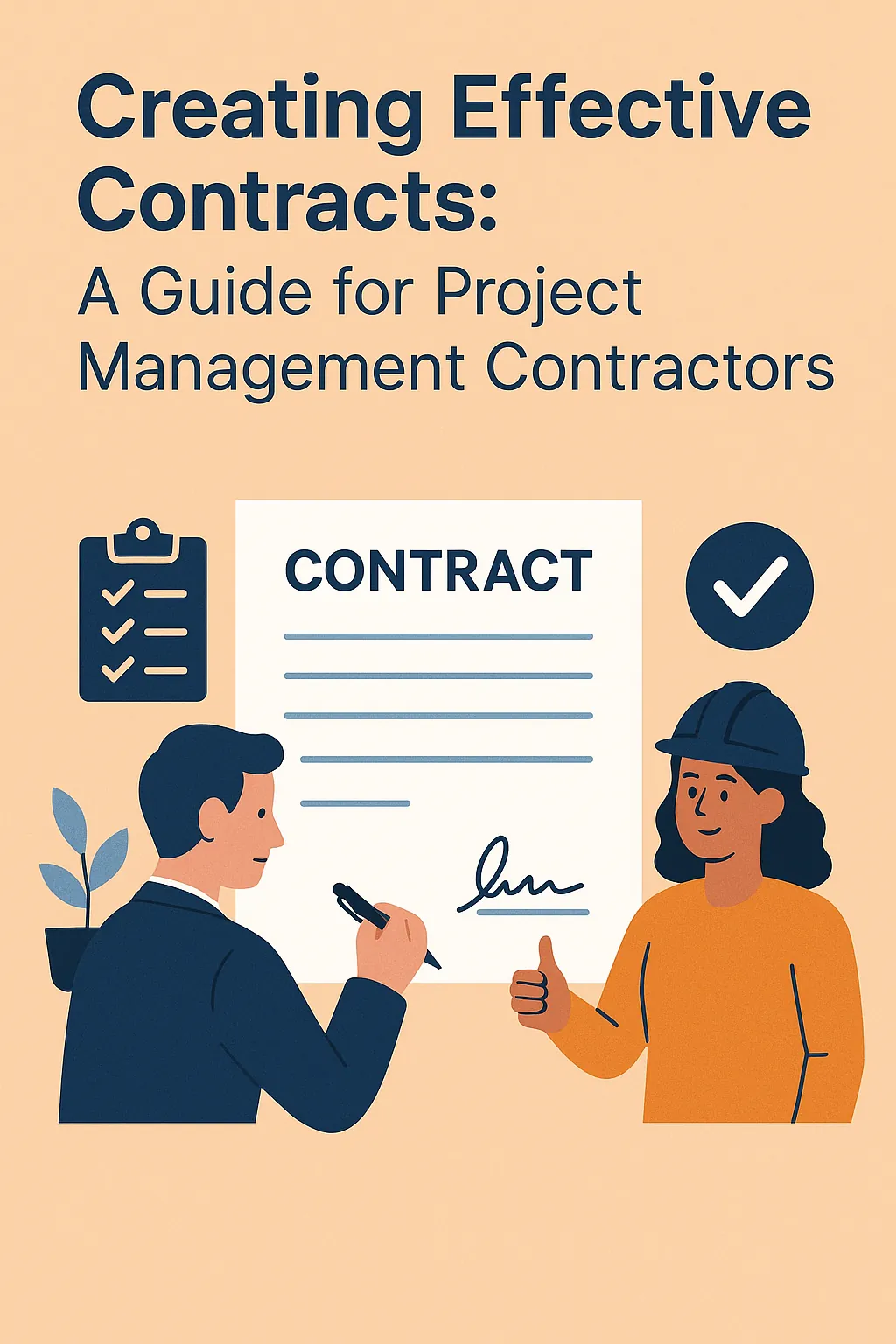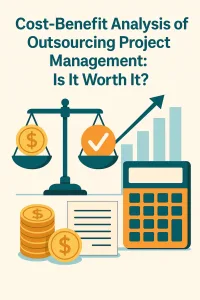Introduction
Contractors play a pivotal role in ensuring that projects are executed efficiently and effectively. Project management contractors are professionals or firms hired to oversee specific aspects of a project, often bringing specialized skills and expertise to the table. They are responsible for coordinating tasks, managing resources, and ensuring that project objectives are met within the stipulated time frame and budget. Their involvement can range from general project oversight to specialized functions, depending on the project’s needs.
The significance of contracts in this context cannot be overstated. Contracts serve as the foundation of the relationship between project management contractors and their clients, establishing clear expectations and responsibilities. They create legally binding obligations that protect the interests of both parties involved. By outlining the scope of work, payment terms, timelines, and other critical details, contracts help mitigate risks and prevent misunderstandings that could lead to disputes. This legal framework is essential for fostering trust and collaboration, which are vital for the success of any project.
In this blog post, we will delve into the key components of effective contracts that safeguard the interests of both project management contractors and their clients. We will explore essential elements such as the scope of work, payment structures, timelines, and dispute resolution mechanisms. By understanding these components, contractors can better navigate their contractual obligations and ensure a smoother project execution process.
Understanding Contracts in Project Management
Contracts serve as the backbone of professional relationships, ensuring that all parties involved have a clear understanding of their obligations and expectations. Here’s a foundational overview of what contracts entail, the various types available, and the significance of clear agreements in project management.
What is a Contract?
A contract is a legally binding agreement between two or more parties that outlines the terms and conditions of a project. It establishes the obligations of each party, including deliverables, timelines, payment terms, and other essential details that govern the relationship throughout the project lifecycle. Contracts are crucial in mitigating risks and providing a framework for resolving disputes should they arise [12].
Types of Contracts
Understanding the different types of contracts is essential for project management contractors and freelancers. Here are some common types:
- Fixed-Price Contracts: These contracts set a predetermined price for the entire project. They are beneficial for projects with well-defined scopes, as they provide cost certainty for both parties. However, they can be risky for contractors if project requirements change significantly [10].
- Time and Materials Contracts: In this arrangement, the contractor is paid for the actual time spent on the project and the materials used. This type of contract is ideal for projects where the scope is uncertain or likely to change, allowing for flexibility in project execution [10].
- Cost-Reimbursable Contracts: These contracts involve the contractor being reimbursed for allowable costs incurred during the project, plus an additional fee for profit. This type is often used in projects where costs are difficult to estimate upfront [10].
Importance of Clear Agreements
Clear agreements are vital in project management for several reasons:
- Clarity and Expectations: A well-drafted contract clarifies the roles, responsibilities, and expectations of all parties involved. This reduces the likelihood of misunderstandings and miscommunications, which can lead to conflicts [11].
- Risk Management: Contracts help identify potential risks and outline how they will be managed. By addressing issues such as payment terms, intellectual property rights, and dispute resolution mechanisms, contracts protect both parties from unforeseen challenges [11][12].
- Legal Protection: In the event of a dispute, a clear contract serves as a legal document that can be referenced to resolve issues. It provides a basis for legal recourse, ensuring that both parties are held accountable to the terms agreed upon [12].
Key Components of an Effective Contract
Creating a well-structured contract is essential for project management contractors and freelancers to ensure that both parties are protected and clear on their obligations. Here are the key components that should be included in every project management contract:
- Scope of Work: This section should clearly define the deliverables and responsibilities of each party involved. It is crucial to outline what is expected to avoid misunderstandings and ensure that all parties are aligned on the project’s objectives and tasks [6].
- Timeline: Establishing a timeline with specific project milestones and deadlines is vital. This helps in tracking progress and ensures that the project stays on schedule. Clear timelines also facilitate accountability and allow for timely adjustments if necessary [7].
- Payment Terms: Detail the pricing structure, payment schedule, and invoicing process. This includes specifying how and when payments will be made, which can help prevent disputes over financial matters. Clear payment terms are essential for maintaining a healthy working relationship [8].
- Intellectual Property Rights: It is important to specify the ownership and use of project outputs. This section should clarify who retains rights to the work produced and how it can be used in the future. This protects both the contractor’s creative contributions and the client’s interests [6].
- Confidentiality Clauses: Protecting sensitive information shared between parties is crucial. Confidentiality clauses ensure that proprietary information, trade secrets, and other sensitive data are not disclosed to unauthorized individuals or entities, thereby safeguarding both parties’ interests [6].
- Termination Conditions: Outlining the circumstances under which the contract can be terminated is essential. This includes specifying the notice period required and the conditions that would justify termination. Clear termination conditions help manage expectations and provide a framework for resolving disputes if they arise [6][7].
By incorporating these key components into project management contracts, contractors and freelancers can create agreements that not only protect their interests but also foster a collaborative and transparent working relationship with their clients.
Protecting Both Parties: Balancing Interests
The relationship between contractors and clients is pivotal to the success of any project. A well-crafted contract serves as the foundation for this relationship, ensuring that both parties’ interests are safeguarded. Here are some key components and considerations for creating effective contracts that protect both contractors and clients.
Potential Risks and Mitigation Strategies
Both contractors and clients face various risks throughout the project lifecycle. Understanding these risks is essential for creating a balanced contract:
- Scope Creep: This occurs when the project’s requirements expand beyond the original agreement. To mitigate this risk, contracts should include a clear project scope definition and a process for managing changes, such as a change order clause that outlines how additional work will be handled and compensated.
- Payment Delays: Contractors may face cash flow issues if clients delay payments. To protect against this, contracts should specify payment terms, including milestones for payments tied to project deliverables, and include late payment penalties to encourage timely payments.
- Intellectual Property Issues: Disputes over ownership of work products can arise. Contracts should clearly define the ownership of intellectual property created during the project, including any rights to use or modify the work after completion.
The Role of Negotiation
Negotiation is a critical step in achieving a balanced contract. Both parties should engage in open discussions to express their needs and concerns. Effective negotiation can lead to:
- Mutual Understanding: By discussing expectations and potential challenges, both parties can develop a shared understanding of the project’s goals and limitations.
- Tailored Solutions: Negotiation allows for the customization of contract terms to fit the specific needs of both parties, ensuring that the contract reflects their unique circumstances.
- Building Trust: A collaborative negotiation process fosters trust, which is essential for a successful working relationship. When both parties feel heard and valued, they are more likely to work together effectively.
Key Clauses for Protection
Incorporating specific clauses into the contract can provide additional protection for both parties:
- Dispute Resolution: Including a clause that outlines the process for resolving disputes can prevent conflicts from escalating. This may involve mediation or arbitration before resorting to litigation, which can save time and resources.
- Liability Limitations: A liability limitation clause can protect both parties from excessive claims. This clause should define the extent of liability for damages and may include caps on the amount recoverable, ensuring that neither party faces undue financial risk.
- Confidentiality Agreements: Protecting sensitive information is crucial. A confidentiality clause can prevent either party from disclosing proprietary information, safeguarding business interests and trade secrets.
By focusing on these key components, project management contractors can create contracts that not only protect their interests but also foster a positive and productive relationship with clients. A fair contract is not just a legal document; it is a tool for collaboration and success in project management.
Legal Considerations and Best Practices
Creating effective contracts is crucial for project management contractors and freelancers, as these documents serve as the foundation for successful project execution and protect the interests of all parties involved. Here are some key components and best practices to consider when drafting contracts:
Importance of Consulting a Legal Professional
- Expert Guidance: Engaging a legal professional when drafting contracts is essential. They can provide insights into the legal requirements and implications of the contract, ensuring that it complies with relevant laws and regulations [1].
- Tailored Contracts: A legal expert can help tailor contracts to the specific needs of the project and the parties involved, which can prevent misunderstandings and disputes later on [2].
Best Practices for Contract Drafting and Review
- Clear Scope of Work: Define the scope of work explicitly. This includes detailing the tasks, deliverables, timelines, and responsibilities of each party. A well-defined scope helps prevent scope creep and ensures that all parties have a clear understanding of their obligations [1][3].
- Incorporate Important Clauses: Pay attention to critical clauses such as indemnity, confidentiality, and dispute resolution. These clauses can protect both parties by outlining the procedures to follow in case of disagreements or breaches [8][9].
- Regular Reviews: Contracts should be reviewed regularly, especially if there are changes in project scope or conditions. This ensures that the contract remains relevant and effective throughout the project lifecycle [7].
Common Pitfalls to Avoid in Project Management Contracts
- Vague Language: Avoid using ambiguous terms that can lead to different interpretations. Clear and precise language is vital to ensure that all parties understand their rights and obligations [3][4].
- Neglecting Legal Requirements: Failing to include necessary legal terms and conditions can render a contract unenforceable. It is crucial to ensure that all legal requirements are met to protect the interests of both parties [9].
- Ignoring Change Management: Contracts should include provisions for managing changes in project scope or deliverables. This helps in addressing any modifications that may arise during the project without causing disputes [6].
By adhering to these legal considerations and best practices, project management contractors can create effective contracts that safeguard their interests while fostering a collaborative working environment. This proactive approach not only minimizes risks but also enhances the likelihood of project success.
Conclusion
The creation of effective contracts is not merely a formality; it is a critical component that safeguards the interests of both contractors and clients. Each key element discussed throughout this guide plays a vital role in ensuring clarity, accountability, and mutual protection.
- Significance of Key Components: The essential components of a contract—such as clear definitions of scope, timelines, budget, quality requirements, and dispute resolution mechanisms—serve to establish a solid foundation for the project. These elements help prevent misunderstandings and disputes, ensuring that all parties are aligned on expectations and responsibilities. By meticulously outlining these aspects, contractors can mitigate risks and enhance the likelihood of project success.
- Seriousness in Contract Creation: It is imperative for project management contractors to approach the contract creation process with the seriousness it deserves. A well-structured contract not only protects the contractor’s interests but also fosters a professional relationship with clients. By investing time and effort into crafting comprehensive contracts, contractors can avoid potential pitfalls and ensure smoother project execution.
In conclusion, effective contracts are the backbone of successful project management. By understanding and implementing the key components discussed, contractors can protect their interests and foster positive working relationships, ultimately leading to successful project outcomes.
Find out more about Shaun Stoltz https://www.shaunstoltz.com/about/.
This post was written by an AI and reviewed/edited by a human.



